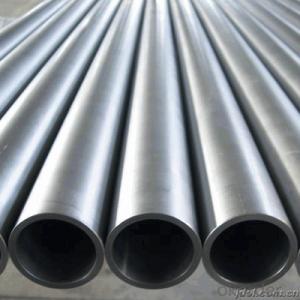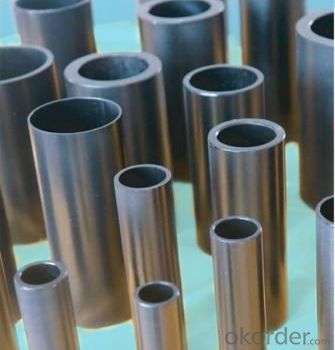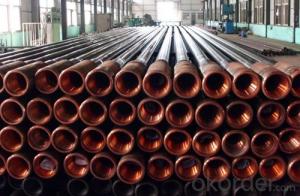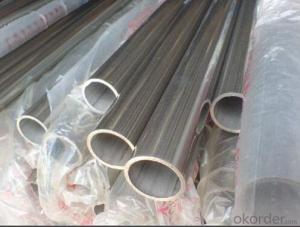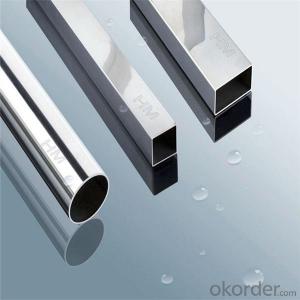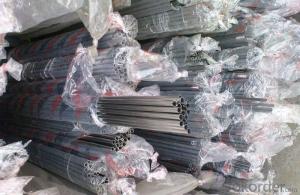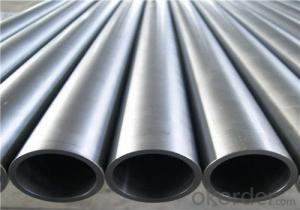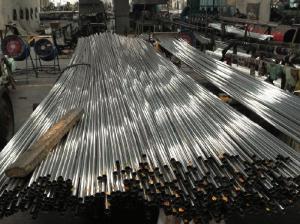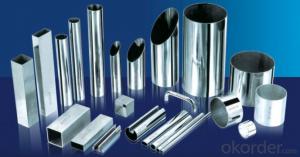Stainless Steel Welded Pipes 202 grade for decoration
- Loading Port:
- Qingdao
- Payment Terms:
- TT or LC
- Min Order Qty:
- 10 m.t.
- Supply Capability:
- 2000 m.t./month
OKorder Service Pledge
OKorder Financial Service
You Might Also Like
Stainless Steel Welded Pipes 202 grade for decoration
Main Features of Stainless Steel Welded Pipes 202 grade for decoration:
Material Grade: 201, 304, 316, 410, 430, etc
Outer Diameter: 8mm--114mm
Thickness: 0.16mm - 3.00mm
Length: 2440mm, 3050mm, 5800mm, 6000mm, 6100mm or as customer request.
Tolerance: a) Outer Diameter: +/- 0.2mm
b) Thickness: +/- 10% OR as customer request
c) Length: +/- 10mm
Surface:
Satin / Hairline :180#, 320#
Polish : 400# ,600# ,800# or Mirror surface
Application: Decoration ,( Processed into railings, handrails, doors and Windows )
Datas for Stainless Steel Welded Pipes 202 grade for decoration:
Chemical Composition Material | Composition material | 201 | 202 | 304 | 316 | |
| C | ≤0.15 | ≤0.15 | ≤0.08 | ≤0.08 | ||
| Si | ≤1 | ≤1 | ≤1 | ≤1 | ||
| Mn | 5.5-7.5 | 7.5-10 | ≤2 | ≤2 | ||
| P | ≤0.06 | ≤0.06 | ≤0.045 | ≤0.045 | ||
| S | ≤0.03 | ≤0.03 | ≤0.03 | ≤0.03 | ||
| Cr | 16-18 | 17-19 | 18-20 | 16-18 | ||
| Ni | 1.2 | 3-3.5 | 8-10 | 10-14 | ||
| Mo | 2.0-3.0 | |||||
Mechanical Property
| Material Item | 201 | 202 | 304 | 316 | |
| Tensile Strength | ≥535 | ≥520 | ≥520 | ≥520 | ||
| Yield Strength | ≥245 | ≥205 | ≥205 | ≥205 | ||
| Extension | ≥30% | ≥30% | ≥35% | ≥35% | ||
| Hardness (HV) | <253 | <253 | <200 | <200 | ||
Main Structure:
1.Standard: ASTM, AISI, DIN, EN, GB, JIS
2.Thickness: 0.16mm - 3.00mme
3.Outer Diameter:8mm-114mm
4.Welding Line Typ:EFW
FAQ:
Why should you choose us?
1.Full complete production line including Galvanized steel, Coil,Pipe and strip rope
2.Competitive price, superior quality, professional service team
3.Perfect logstics arrangement
4.Stable and strong qualification
Picture:
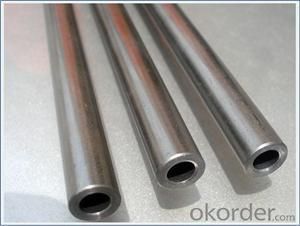
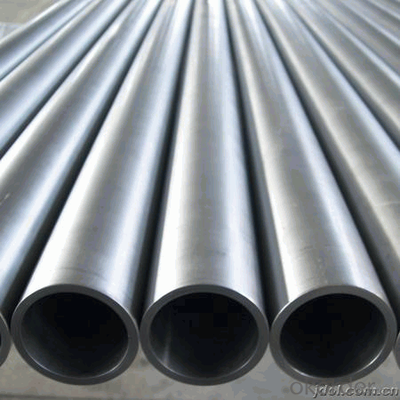
- Q: What are the different methods of testing steel pipes?
- There are several methods of testing steel pipes, including non-destructive testing methods such as ultrasonic testing, magnetic particle testing, liquid penetrant testing, and radiographic testing. Destructive testing methods like tensile testing, bend testing, and impact testing can also be used to assess the strength and integrity of steel pipes.
- Q: Can steel pipes be used for water supply systems?
- Yes, steel pipes can be used for water supply systems. They are commonly used in many industrial and commercial applications due to their durability and strength. However, it is important to note that steel pipes need to be properly coated or lined to prevent corrosion and ensure water quality. Additionally, steel pipes may require more maintenance compared to other materials like PVC or copper.
- Q: What are the lengths of scaffold steel tubes?
- Used to build scaffolding of steel pipes in general have two kinds, an outer diameter 48mm, wall thickness 3.5mm; another kind of outer diameter 51mm, wall thickness 3mm; according to its location and role of different, can be divided into vertical pole, horizontal rod, sweeping rod, etc.. According to the technical specification for construction of steel tubular scaffold with couplers, JGJ 130 - 2011[1]. The scaffolding steel pipe should be specified with the current national standard "GB/T13793" or "straight seam welded steel pipe welded steel pipe for low pressure liquid delivery" GB/T3091 Q235 ordinary steel pipe; steel pipe steel quality should meet the requirements of current national standard grade Q235 steel "carbon structural steel" in GB/T700. The scaffold pipe shall be made of a diameter of 48.3 * 3.6 steel tubes. The maximum mass of each steel tube shall not be greater than 25.8kg.
- Q: How do you connect steel pipes together?
- Steel pipes can be connected together using various methods such as welding, threading, flanges, or mechanical couplings. Welding involves fusing the ends of the pipes together using heat, while threading involves cutting grooves into the pipe ends and screwing them together. Flanges are used to connect pipes using bolts and gaskets, providing a secure and leak-proof joint. Mechanical couplings utilize compression fittings or clamps to connect pipes without the need for welding or threading. The appropriate method depends on the specific application, pipe size, and project requirements.
- Q: How are steel pipes used in the manufacturing of renewable energy systems?
- Steel pipes are widely used in the manufacturing of renewable energy systems due to their durability, strength, and versatility. They are commonly used in the construction of wind turbines, solar panels, and geothermal systems. Steel pipes are used as support structures for wind turbine towers, providing stability and withstanding harsh weather conditions. In solar panel systems, steel pipes are used as frames to hold the panels in place, ensuring their proper alignment and stability. Additionally, steel pipes are used in geothermal systems to transport hot water or steam from underground reservoirs to the surface for electricity generation. Overall, steel pipes play a crucial role in the manufacturing of renewable energy systems, contributing to their efficiency and longevity.
- Q: Seamless steel pipe 8162 and 8163 what is the difference?
- GB 8162 is the structure of the tube, there is no need for flaw detection, the use of mechanical processing, stents;
- Q: Where is the difference between seamless steel pipe and welded pipe?
- The steel tube is a hollow steel strip, used as pipe conveying fluid, such as oil, gas, water, gas, steam, in addition, the bending and torsional strength of the same, the weight is light, so it is widely used in the manufacture of machinery parts and engineering structures. It is also used to produce all kinds of conventional weapons, guns, shells and so on.
- Q: Can steel pipes be used for high-temperature applications?
- Yes, steel pipes can be used for high-temperature applications. Steel is a durable and robust material that can withstand high temperatures without deformation or structural failure. It has excellent heat resistance properties, making it suitable for various industrial processes, such as steam lines, power plants, and oil refineries, where high temperatures are involved. The use of specifically designed high-temperature steel alloys further enhances their performance in extreme heat conditions.
- Q: How are steel pipes used in the construction of railway tracks?
- Steel pipes are used in the construction of railway tracks as they provide a strong and durable foundation. They are typically used for the support and reinforcement of the tracks, helping to distribute the weight of the trains and ensuring stability. Steel pipes also play a crucial role in drainage systems, allowing for proper water flow and preventing damage to the tracks.
- Q: How do you calculate the weight of a steel pipe?
- To calculate the weight of a steel pipe, you need to know its outer diameter, wall thickness, and length. First, calculate the cross-sectional area of the pipe by subtracting the inner diameter from the outer diameter and multiplying it by π. Then, multiply the cross-sectional area by the wall thickness and length of the pipe to find its volume. Finally, multiply the volume by the density of steel to calculate the weight of the steel pipe.
Send your message to us
Stainless Steel Welded Pipes 202 grade for decoration
- Loading Port:
- Qingdao
- Payment Terms:
- TT or LC
- Min Order Qty:
- 10 m.t.
- Supply Capability:
- 2000 m.t./month
OKorder Service Pledge
OKorder Financial Service
Similar products
Hot products
Hot Searches
Related keywords
